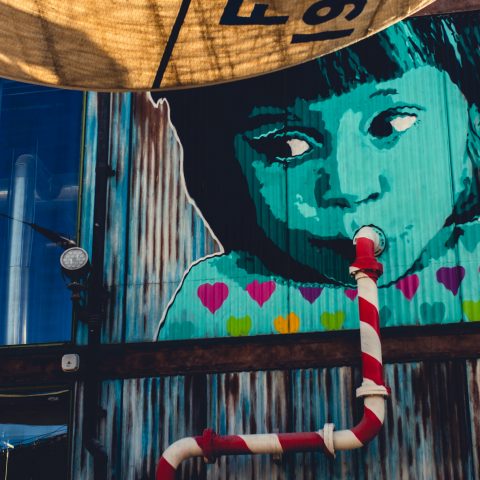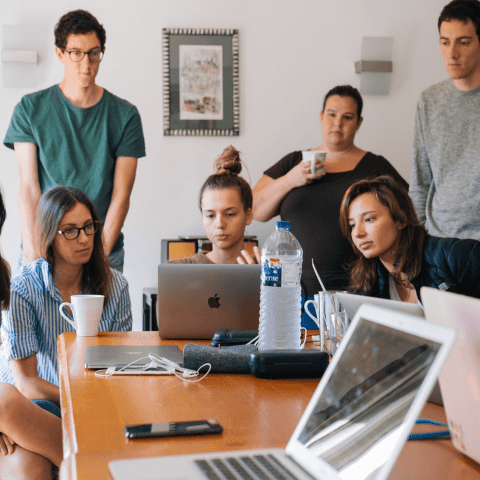Background to project
To date, the project has been a three-way partnership between Tincan (arts project technology provider), Cardiff University (research partner and specifically Glyn Mottershead), Chapter Arts Centre (client partner) and Audiences Wales (data partner). We worked together to move the project from basic idea (conversations and sketches) to a prototype including applying for seed funding from REACT.
The basic premise of Artvaark is that it attempts to leverage three social oriented principles - recommend, reward, redeem - in part by using data (yes, Big Data to those that want a lazy hook) from other organisational business tools (initially this is ticketing platforms but it could just as easily be an organisation's CRM or membership database).
It looks to transform the relationship between audience and organisation by combining tailored and personalised content, community participation and guidance, and a rewards platform that will incentivise members to explore their interests in a way that brings community and organisation closer together. That's the theory anyway, it's a work in progress and as part of our Drupal Show-n-Tell session we'll be rattling through where they're up to with it and the fails, speedbumps and brick walls we've hit along the way.
Let's start with what we mean by recommend, reward and redeem and the three corresponding engines driving Artvaark:
Recommendations Engine
Lots of our sites already offer a form of recommendation to end users which is managed in one of two ways. Either the recommendations are automated based on cross referenced categorisation (e.g. an event from the same or similar genre types) or they're manual curated (ie the editor makes a conscious decision to connect two events). Artvaark goes far beyond this, using three sources to build recommendations: algorithmic, curated and smart questioning. This creates a far more personalised, tailored and powerful relationship. For the algorithmic recommendations we're using prediction.io - a piece of kit that looks for correlations between user behaviour in relation to events. It's extremely powerful and means we can make predictive recommendations on previous user behaviour such as previous purchases, similar purchases by other similar users and viewing history.
Rewards Engine
This is the community reward engine, which for the initial project (with Chapter Arts Centre) will be linked into an existing real-world rewards system where 'points mean prizes'. The rewards engine will add a behavioural support system for engagement, loyalty and will encourage risk taking. Users will potentially be rewarded (with points) for a wide range of activities that they engage in - that could be anything from purchasing a ticket to an event, to writing a review, submitting an image of an event, to simply logging into the platform, the number of pages they view and/or the frequency of their visits. Again, powerful stuff.
Redemption Engine
This will provide users with a means of exchanging their points for rewards. These rewards could be tickets to another event, access to priviliged content or events (i.e. either off or online), increased status within the platform (e.g. a promotion from being a regular user to becoming a 'Tastemaker'), a personalised brochure (for easy print-at-home use) and - crucially - the ability to recommit (or donate back) their rewards to a given cause - i.e. social giving.
This last piece - social giving - is really exciting. It lifts the platform from incentivisation driven by personal gain into the realms of the social economy. Essentially the sponsoring organisation will be able to offer one or more schemes to which users can donate their earned points, rather than use them themselves. This is more than just a 'nice idea' - during user interviews we found a heartening proportion of passionate users (those who simply *love* the sponsoring venue for all manner of reasons). They like the idea of earning points but it's more important to them to feel they're maintaining their relationship with the sponsoring organisation. If given the option, they'd more than willingly help to support the sponsoring organisations projects by donating, or reinvesting, points. Powerful stuff and we'll be writing more about this in future posts.
Hopefully the above demonstrates several areas of innovation. We certainly think so. Many platforms and many sites provide recommendations - either automated based on browser purchase history; or manually curated by internal staff. Equally some platforms provide some form of ‘reward’ and a few provide a mechanism to redeem rewards. None however - neither in the arts and culture sector nor any other sector - provide all three combined and certainly not to the extent and complexity that we are shooting for. Further none at any level incorporates social giving into its modus operandi.
All of this means Artvaark is also extremely prescient. At a time when there is pressure to diversify and grow income sources; when the need for deeper and further engagement with audiences is not just needed but expected - Artvaark could be transformational. The questions Artvaark is answering and the challenges it is meeting are common across the arts and cultural sectors but also much further beyond.
The initial project will see Artvaark deployed for Chapter Arts Centre (in Cardiff). If successful, this will be a platform that is highly configurable to the specific needs of ANY community focused sector - so not just arts and culture but, for example, also for entertainment, sports and news.
We're aware of the risks we're running in developing a platform like this - primarily that of over-complicating the platform itself with interesting but unwanted pieces.Our plan is to do quick development cycles with iterative rounds of research, develop, test, refine and retest. Essentially no fear in failing fast as long as we fail forward.
So where are with Artvaark? We have a working prototype on a production environment and we've already done some user engagement (e.g. motivation and sentiment interviews). We're about to kick off some real world face-2-face user testing (plus we've exposed our gubbins to the London Drupal community!). We're extremely keen to include meaningful measurement (e.g. GA conversion > piwik) and ideally some multivariate testing into the process. The kit is all out there, our task is primarily one of joining it up, configuring it to our needs and testing it.
At the same time we're looking to engage with other community focused organisations and begin to get their input and see what opportunities there might exist out there. If you'd be interested in getting involved please drop us a line!




